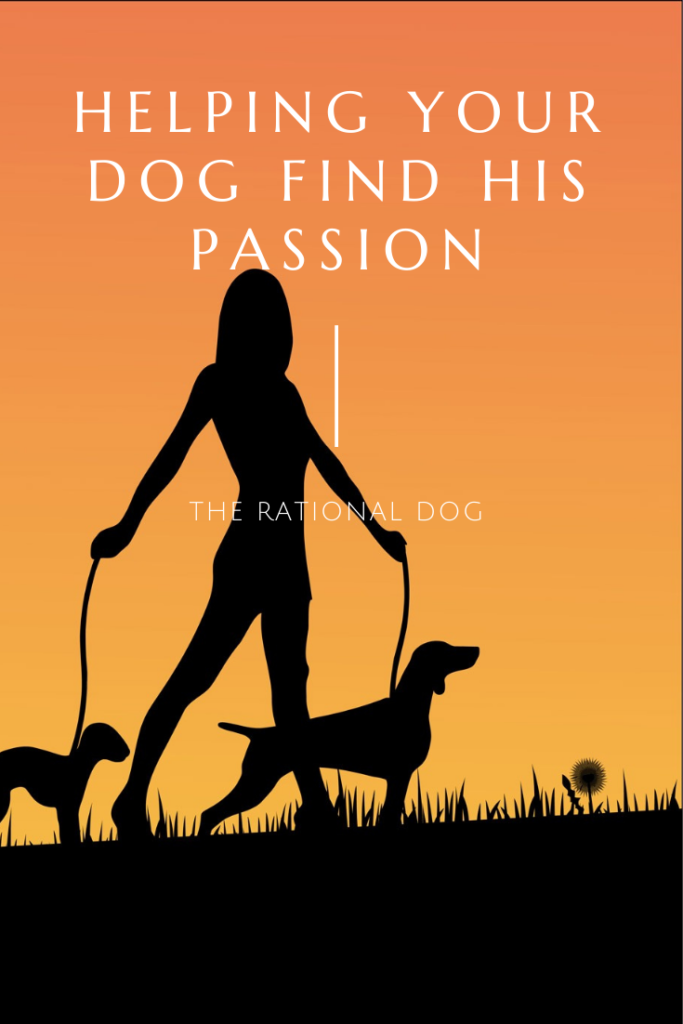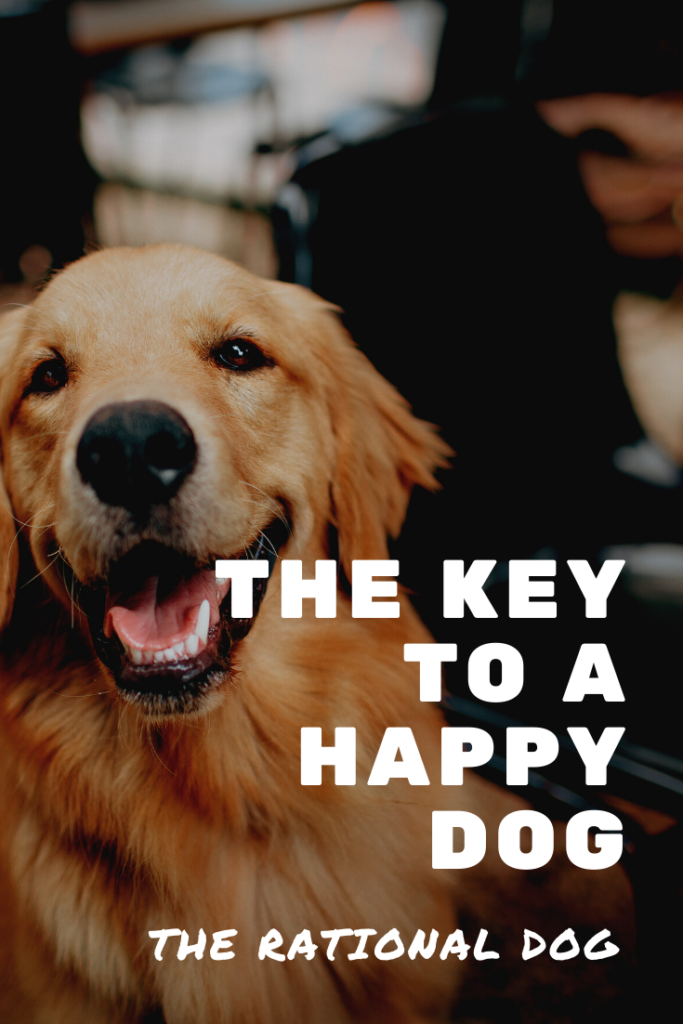This is a topic that has been on my mind for awhile now, and I think it’s a really important one. As someone who trained dogs as a hobby, I met a lot of dogs. As a professional dog trainer? I have met hundreds of dogs and families. I am so sad to say that the vast majority of the dogs that I have met as a professional trainer, especially those with serious behavioral issues, are dogs that are living a shell of a life, without an opportunity to engage in activities that adequately express their bred-in drives, and ultimately allow them to enjoy things that they are passionate about.

It may seem odd to have the word passion in a blog post about your dog, but hear me out. Inside every human is something that truly lights us up. Art, music, architecture, martial arts, animals, gardening, the list goes on and on (and on some more). These aren’t necessarily things that we pursue for our entire lives, or things that we choose as a career option (though most of us would if we could). Instead, these are things that simply bring us joy. I could easily talk about dogs, horses, or tell stories about my bird for an entire week straight and never get bored. My favorite thing to happen at parties is when someone asks me about my animals, because my passion for them is absolutely inexhaustible.
Dogs absolutely have the same tendencies within them, and just like with people, their passions will be different for every dog (though there are some things that may affect what they’re most drawn to, which we’ll discuss in a moment). But when we talk about how to help your dog find his passion, I want to caution you away from falling into the trap of giving your dog a job.
Jobs vs. Passion
This is absolutely one of the most common things that dog trainers will tell you if you are having behavior issues with your dog: “Your dog needs a job.” They’ll usually have a mountain of suggestions for jobs that you can give your dog, to help channel their energy and destructive tendencies. However, there is a flaw here.
A job is different than a passion.
Have you ever found yourself doing a job that did not light you up? If you are a human living in modern society, I imagine you have at one point. Some people spend their entire lives stuck in that hamster wheel of passionless work. Do we find some happiness in it? Sure. But in those cases, when we work without passion, there is not true JOY. We are able to pursue those passions in other areas of our lives, even if it’s not our main work, and we find that light and happiness. And this is what your dog needs in his life.
An excellent example of this is my Bloodhound puppy, Horton. He is incredibly smart, and he is very busy, so I do obedience work with him to help keep his brain engaged and active. We practice heeling patterns, precision obedience moves, and tricks, and he enjoys it. But Horton’s true passion in life is tracking and trailing. The happiness that he has when he does “busywork” obedience is positively pale compared to the joy that he gives off when he finds his lost person at the end of a trail.
Every dog deserves a chance to find something that brings him that light and joy in his life. It may not be the thing that he does all day every day. It may only be something that your dog gets to engage in a few times a week for 15 minutes at a time. But finding a way to let him have that joy is truly imperative to a happy, healthy, well-balanced dog. Your challenge at the beginning is discovering WHAT your dog’s passion is, followed by the question of HOW to help him enjoy it.
How to find your dog’s passion
When it comes to discovering what your dog’s passion may be, we are in luck. Dogs have been selectively bred for hundreds of years for different characteristics and drives, and much of the time we can use those things to pinpoint what will light your dog up.
For example, it’s pretty obvious to assume that a dog bred for hunting with his nose, like my Bloodhound, or a Beagle, would absolutely LOVE activities that involve using his nose. A dog bred for hunting and chasing, like a Greyhound, a Whippet, or a Rhodesian Ridgeback, is going to light up with activities where he can RUN and chase things!
Retrievers will likely love retrieving. Herding dogs will likely love herding, and both of those categories will often absolutely excel in activities that involve close work and connection with their favorite people, such as Obedience, Rally, and Agility.
Notice with all of these examples, I say the word, “likely.” There is a reason for that. There is more than just your dog’s genetics at play…there is also the question of his specific personality. I have met many Bloodhounds who could actually care less about tracking and trailing humans. They all live in their noses, but some just are not interested in the same game as others. I have met Australian Shepherds who have no interest in working with livestock, and would rather be therapy dogs.
So, in essence, your dog’s breeding will likely give you a push in the right direction to help find them something that they are interested and passionate about, but you also may need to explore a few different options based on your dog’s specific temperament and personality. Please do, though! You will probably see a big change in your dog! Let’s talk about what you might see.

How will this change your dog?
So many of the dogs that I meet or that I’ve seen with “behavior problems” are dogs with no purpose. They are house pets, but they have no desire to JUST be house pets. They are backyard dogs, but the only things that they have to channel their intelligence and energy are destructive habits, like digging or destroying fences.
Usually, their humans absolutely love them. They just don’t understand why their dog is so…unhappy. This is usually why. Dogs without a purpose, and the opportunity to engage in their preferred activities, can quickly become destructive, disruptive, and hell to be around.
I once had a Pit Bull named Callie come through for training. She was a fun, intelligent, and wonderful dog, but she was very reactive to other dogs. She would use the presence of other dogs as an opportunity to work herself into a frenzy, so that she could get that rush of excitement that she could find nowhere else in her life. Want to know what helped Calllie so incredibly much? Tug-o-war. Hard, full body, 70 lb dog swinging through the air tug-o-war. She learned that while she was NOT allowed to react to other dogs in her usual frenzy, she could get that release and that joy in another, completely appropriate way!
I want you to stop now, and really think about your own dog. Think about what makes your dog happy. Think about what lights him up. Now, before you sign off and go on with your day, make a promise to yourself and to your dog to find a way to GIVE him that activity. Maybe not every day. But a few times a week at least. Think, make a promise, and go out and give your dog a more fulfilled life!